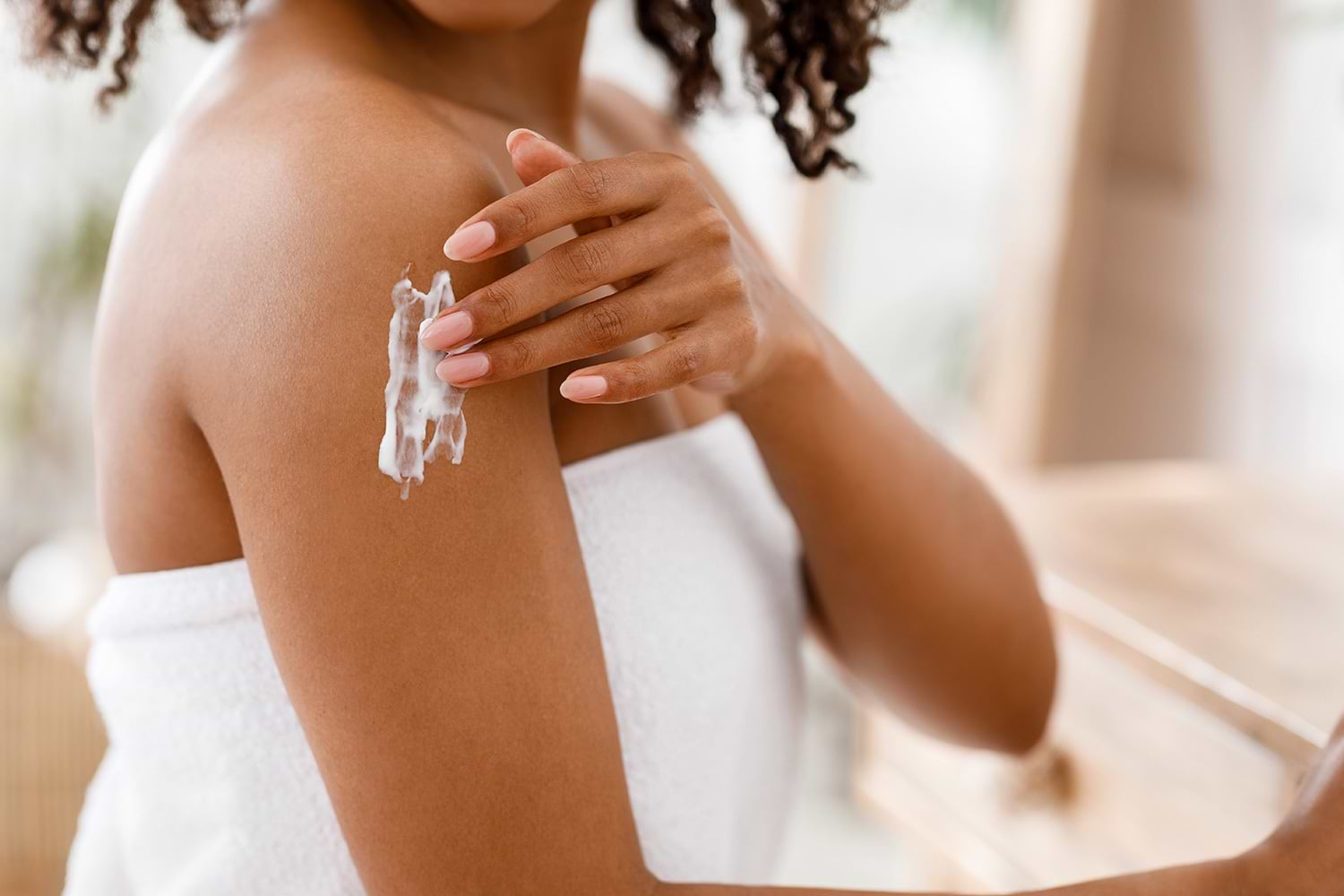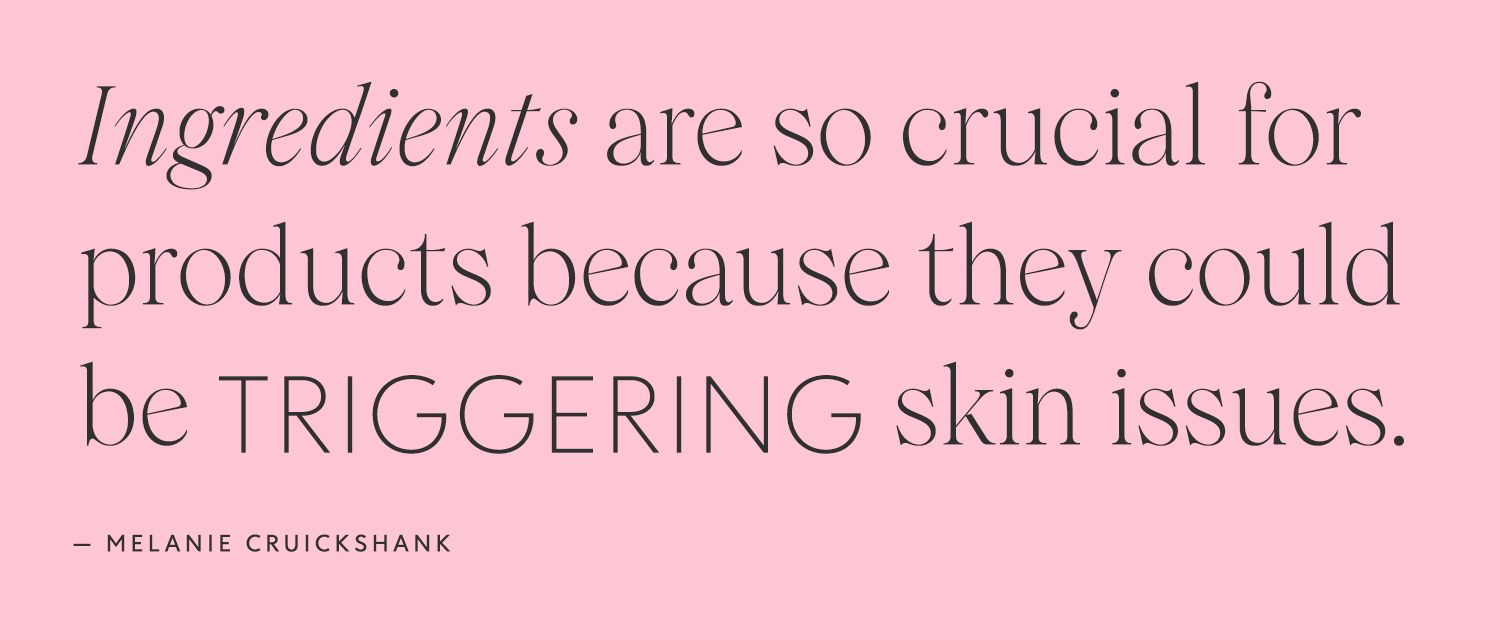Welcome to thoughtful, organic beauty
Hello Joyous is an organic, plant-based, sustainable beauty brand here to bring more joy to your day.
When it comes to natural beauty what is left out of a product is just as important as what is added in as both can have an impact on your health. To help you make informed decisions about what you put on your body, I’ve already covered everything you need to know about synthetic fragrances, petroleum-based ingredients, propylene glycol, phthalates, formaldehyde-releasing preservatives and BHT & BHA.
The next ingredient I want to spotlight is aluminum, a metal that is commonly used in antiperspirants and as an anti-caking agent, emulsifier, or bulking agent in cosmetic products.
Below, I’ll outline everything you need to know about aluminum in cosmetics and beauty products including what it is, how it’s used, possible negative health impacts, what to look for on labels and all-natural swaps that are kind to the planet so you can clean your beauty routine!
What is Aluminum?
Aluminum is a silvery white metal that is the most wide-spread metal on the planet. It’s so common that it is actually the third most abundant chemical element found on earth after oxygen and silicon. This metal easily binds with other elements, which is why it was only discovered relatively recently since it does not occur in a pure form in nature.
Since it is so abundant and easy to process it is used in many applications for everything from basic aluminum foil to cars, cell phones, and computers. You’ll also find this metal used in the cosmetics and beauty industry, which is what I want to take a closer look at below.
How is Aluminum Used in Beauty Products?
The form of aluminum that is often used in cosmetics and beauty products is alum. The most common compounds used in the beauty industry are potassium alum, soda alum, and ammonium alum, though as we’ll see below there are many other aluminum-based ingredients that are used.
Aluminum is added to cosmetics and beauty products because it functions well as an astringent and antibacterial agent.
Astringent chemicals cause shrinkage or contraction of tissues, which is why they are often used in products that are designed to minimize the appearance of pores. You can also find them in products such as styptic pencils that help seal cuts caused by shaving.
Other forms of aluminum are used in colouring agents, which includes anything that ends in aluminum lake such as Yellow 10 Aluminum Lake. Other actions of aluminum in cosmetics and beauty products include:
Finally, one of the most common uses for aluminum or alum in beauty products is as an active ingredient in antiperspirants. The astringent and antibacterial properties work together to close pores to prevent sweating and kill off bacteria to reduce body odour. While this may sound good in theory, in practice antiperspirants and aluminum have some not-so-joyous side effects on our skin and body that are outlined below.
It’s important to read the labels on all your cosmetics and beauty products since aluminum can be found in the following:
Below I’ll highlight what to look for on labels so you can be a savvy shopper!
Why is Aluminum Harmful?

1. Blocks Sweat Glands
Aluminum salts used in antiperspirants block the sweat glands to keep you from sweating. They work by melting on the skin and dissolving into the pores.
However, sweat is an important avenue of detoxification, with some research finding it to be an effective way to eliminate heavy metals and chemicals such as BPA and some PCBs. Since gentle daily detox is a pillar of joyous health, choose safe alternatives that don’t block your pores and allow your body to do its thing. You can up the detox benefits by enjoying a daily cuppa delicious, liver-supporting wellness tea.
2. Can Cause Skin Irritation
As you likely know, one of the experiences that inspired me to create my own line of clean, organic skincare products was my rosacea journey and sensitive skin. Products that contain aluminum have been noted to cause side effects that include rashes, dryness, itchiness, tightness, and tingling. Some people may also experience allergic reactions, though it is hard to tell whether the reaction is to the aluminum or other ingredients in the products such as synthetic fragrances or propylene glycol.
To keep your sensitive skin safe use moisturizers, deodorants, and skincare products that are free from aluminum and other ingredients you'll want to avoid for skin health.

3. May Be Linked to Alzheimer’s Disease
While the research on the connection between aluminum and Alzheimer’s disease is not settled, a review of 34 studies found an association between the two. However, they did not look at the impact of topical applications of aluminum, focusing more on the environmental exposures, so more research is needed in this area. With that said, I always encourage lowering your daily exposure to toxins and chemicals as a build up of small exposures over time can potentially lead to negative long term effects.
4. Can Be Poisonous If Ingested
I know we’re not generally in the habit of noshing on our beauty products or cosmetics, but it’s worth noting that if you ingest products that contain alum it can lead to mild symptoms of poisoning including vomiting, nausea, or upset stomach. The reason I include this is so that you can keep these products away from little ones who have a tendency to like to put everything in their mouths. Also, if you or someone you know has kidney disease and accidentally ingests an alum-containing product, they should contact poison control right away.
I firmly believe that the products we put on our bodies should always be safe enough to ingest (though that doesn’t necessarily mean they’ll taste good!). That’s why you won’t find any chemicals, preservatives, or other harmful ingredients in any Hello Joyous product!
5. May Be Linked to Breast Cancer
Based on research the cause and effect association between aluminum and breast cancer requires more investigation to flesh out the specifics. With that said, this study of over 400 women found that those who used aluminum-based antiperspirants more often had links to aluminum in breast tissue. They also found that women with breast cancer had more aluminum in their breast tissue than those who did not have breast cancer. These results indicate that aluminum may be a risk factor for breast cancer and that more research needs to be done in this area.
As always, I prefer to err on the side of caution and keep the aluminum out of my armpits! Why take the risk when there are natural options that allow your body to sweat, while still keeping the pits fresh and stink-free!
What to Look for on Labels
In order to keep your skin and body care aluminum-free, check your product labels for the following ingredients:
It’s relatively easy to decipher the use of aluminum in natural care products since there aren’t many names that hide that it’s in there.
Non-Toxic Beauty Alternatives
Fortunately, there are many incredible companies who have created products that are free from aluminum. Some of my favourite clean beauty brands include da lish Cosmetics and Pure Anada. I also have a simple 3-ingredient tinted lip balm that you can make!
If you’re looking for a natural alternative to pore-clogging, sweat stopping antiperspirants, check out Green Beaver, Schmidts or Routine.
I hope my series on not-so-skin-loving beauty additives empowers you to make the best possible decisions for your health and beauty routine. Once we know what to look for, we can choose the products that work best for our needs.
Knowledge is the foundation of making a change to your beauty routine so learning about what these ingredients are, what they do, and how to spot them is a great place to start. To help you learn more check out the following articles on common skin and beauty product ingredients to avoid:
Xo Joy
It took me several trial and errors to figure out that aluminum is definitely a trigger for my skin issues. I discovered that I am indeed allergic to it. I haven't used an aluminum based deodorant since 2016, and I just threw out all of my makeup and beauty products that contain aluminum, since it actually triggered my skin sensitivities. I also discovered that my skin reacts to anything that is heavily fragranced, causing my skin to become red, irritated. Both have also caused my skin to just clog up, and hello zits! When I got a new makeup that doesn't contain any aluminum derivatives and fragrances, and new products that don't contain any aluminum derivatives or fragrances, my skin issues immediately started to clear up. Since I'm so used to reading labels, I was able to discover that those two things were causing my skin issues to flare up. A lot of companies don't realize that people with sensitive skin want to have great skin, too! So anything labeled that is safe for sensitive skin is a go for me, and again, I read the label carefully. More people need to wake up at reading labels to know what their beauty and grooming products contain.
ReplyThat's great you figured out what your trigger is! Many products labeled as being safe for sensitive skin have many ingredients that are irritants. More often than not it's just marketing. For instance, something labelled as fragrance free may have masking chemicals which are indeed fragrance. Keep reading those labels!